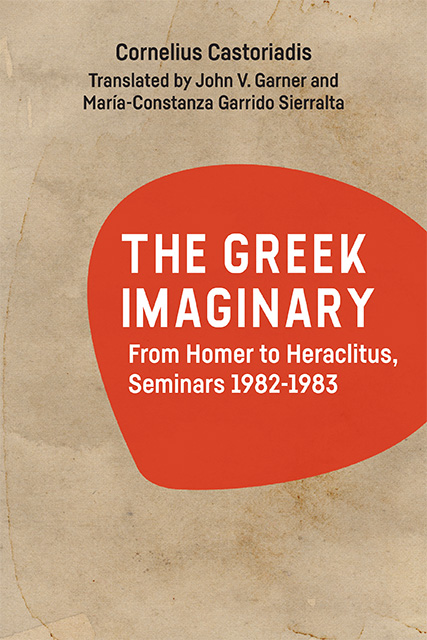Appendix A - Reports on Teaching
Published online by Cambridge University Press: 20 October 2023
Summary
1980–1981 and 1981–1982: Institution of Society and Historical Creation
During the two years of 1980–1981 and 1981–1982, the seminar was dedicated to the question of the specificity of the social-historical as a region of being.
An introductory framing sketched out the limits and aporias that the exact and natural sciences (mathematics, physics, biology) are encountering in the present stage of their development, i.e. the shock rendered against the dictatorship of ensemblistic-identitarian logic and deterministic closure. Without seeking confirmations through “positive” knowledge—nor fearing refutations by it—it is important to notice that the idea of creation, formerly scandalous, no longer seems irreconcilable with the state of this knowledge in its privileged domains.
Society can only be thought of as creation of itself, i.e. as creation once and for all (institutions, social imaginary significations) and as continued creation (history in a narrow sense, social regimes, and particular historical entities).
At the beginning of this creation there is a “contingent” fact, namely the emergence of the human species with its aberrant (or monstrous) biological particularities. The unfitness for life which is characteristic of the human qua simple living being results from the rupture of the living being’s functional regulations due to the emergence of the human psyche and its singular features. These include: the reign of the radical imagination, which breaks with the ensemblistic-identitarian “understanding” of the animal; the disassociation of psychical pleasures and bodily pleasures; and the defunctionalization of pleasure. The psyche is a monad that is self-centered and riveted to the pleasure of pure representation.
After the fact, the institution of society appears as the response that allows for the survival of the human species; but, obviously, this could not provide us with any “explanation.” The social-historical is a field of creation that makes itself exist while making exist the institution and the social imaginary significations that incarnate it. The individual, resultant from a process of social fabrication, is possible only by means of the violent imposition of forms on the psychical monad, i.e. forms for which no production or deduction, whether formal or material, is conceivable: language, rules, values, objects, reality, world.
- Type
- Chapter
- Information
- The Greek ImaginaryFrom Homer to Heraclitus, Seminars 1982-1983, pp. 245 - 248Publisher: Edinburgh University PressPrint publication year: 2023

